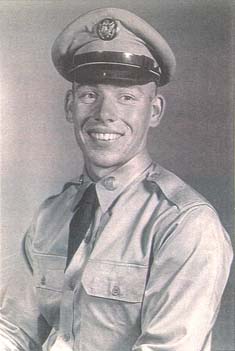
Conrad Davis Totman was born on his family’s farm in Conway, Massachusetts in 1934. Under the watchful eyes of his parents, Ray and Mildred, he was raised there along with his older brother, Leland (Lee), and his two younger sisters, Barbara (Barbette) and Gail. After Conrad graduated from High School in 1952, he enrolled at the University of Massachusetts in nearby Amherst. As an added bonus, his favorite Aunt, Ruth Totman, was a faculty member there. Interest in gardening and agriculture prompted his registration as a major in Ornamental Horticulture.
However, something wasn’t quite right. While he enjoyed gardening at home, studying it at the university level was less appealing than he had hoped, and he was unsure of his life’s path. In addition to his academic pursuits, he was enrolled in the Army ROTC program at UMass, and his experiences led him to the conclusion that a turn in the regular Army might aid him in sorting out his personal dilemmas. Therefore, after completing his freshman year, Conrad enlisted in the Army for a three year hitch.
 On September 9, 1953, Totman boarded a bus in Greenfield, Massachusetts, and was on his way to basic training. During infantry and medical training in Virginia and preventive medicine training in Texas, Conrad wrote a steady stream of letters to his friends and family, including his immediate family in Conway as a whole or as individuals, his Aunt Ruth, and also to Ruth’s long-time friend, Dr. Gertrude Lewis (aka Jean or Jeannie). Ruth and Jean, both strong women in his life, encouraged further thought and analysis from Conrad than just simple descriptions. Politics, social issues and economics were but a few of the topics up for discussion, which occasionally involved other people, such as professors working with Ruth at the University.
On September 9, 1953, Totman boarded a bus in Greenfield, Massachusetts, and was on his way to basic training. During infantry and medical training in Virginia and preventive medicine training in Texas, Conrad wrote a steady stream of letters to his friends and family, including his immediate family in Conway as a whole or as individuals, his Aunt Ruth, and also to Ruth’s long-time friend, Dr. Gertrude Lewis (aka Jean or Jeannie). Ruth and Jean, both strong women in his life, encouraged further thought and analysis from Conrad than just simple descriptions. Politics, social issues and economics were but a few of the topics up for discussion, which occasionally involved other people, such as professors working with Ruth at the University.
An armistice halting military action in Korea was finally agreed upon by July of 1953, yet much work still remained for the multi-national forces assisting in the process of reconstruction. While those forces were gradually replaced by Republic of Korea (ROK) forces, Preventive Medicine units were charged with the inspection of both military and civilian encampments in order to detect and prevent the spread of infectious diseases. Upon completion of his training, Conrad received his orders to report to the 78th Preventive Medicine Control Detachment (PMCD) in northwestern South Korea, where he promptly arrived on Saturday, June 5, 1954. Armed with a pen, an occasional typewriter, and eventually a camera, Totman continued write back to Massachusetts, discussing and describing transitions and transformations – of Korea and of himself...